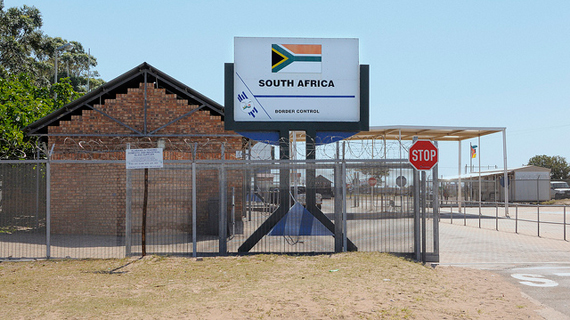
ZIMBABWEANS and other foreign nationals who overstay in South Africa will now be banned from entering the neighbouring country as it tightens its immigration regime.
NQOBANI NDLOVU STAFF REPORTER
All along, those who overstayed were allowed to re-enter South Africa and apply for permits and visas after being made to pay fines.
However, with effect from Monday, those who overstay their allocated time in South Africa will be banned for a period ranging from one to five years. Notices have been posted on the South African side of the Beitbridge border post informing those entering and leaving that country of the new changes.
First-time offenders who overstay for less than 30 days will be banned from entering South Africa for one year, while second-time offenders who overstay by the same period would get a two-year ban and those that overstay for a period exceeding 30 days are banned for five years.
Civil activist Faith Silandulo Dube, who is also a former migration advisor with the International Organisation for Migration (IOM), confirmed seeing the notices on the South African side of the border last weekend and said the policy would affect the majority of Zimbabweans whose permits expire this year.
“I think this is a retrogressive immigration policy direction that is failing to address and compliment efforts by some Sadc members like Zimbabwe with a significant number of people who migrate irregularly to South Africa,” Dube said.
“In the past five years, Zimbabwe significantly reduced passport fees in order to facilitate convenient and legal movement of its citizens, but I foresee these efforts coming to naught. After the expiry of the special dispensation, it’s most likely that a majority of Zimbabweans will be affected since renewal of permits will have to be done in Zimbabwe.
- Chamisa under fire over US$120K donation
- Mavhunga puts DeMbare into Chibuku quarterfinals
- Pension funds bet on Cabora Bassa oilfields
- Councils defy govt fire tender directive
Keep Reading
“It will be difficult for people to leave their jobs and spend long periods renewing permits in Zimbabwe,” Dube said.
The South African Home Affairs department recently announced that its government would soon pronounce modalities of processing expiring work permits for Zimbabweans working in that country.
More than 200 000 Zimbabweans were issued with permits in the 2009 special dispensation process to legalise their stay in South Africa. The permits expire before the end of the year.
South Africa has been introducing a raft of strict measures to regulate foreigners in that country.
Under the new regulations, foreigners would have to travel back to their countries to apply for new permits once they expire.
Foreign nationals now have to prove cohabitation with their South African partners for at least five years before becoming eligible for visas. The previous requirement was just three months.
Adults travelling with children have to produce affidavits from parents proving permission for the children to travel.
According to the South African Home Affairs department, the changes are necessary to curb child trafficking, violations in visa applications, habitual overstaying and to stop foreigners from using fake marriages in order to obtain visas and permits.
According to IOM, 24 305 Zimbabweans were deported from South Africa through the Beitbridge border post between January and October 2013.










